
Catalan, known in the Valencian Community and Carche as Valencian, is a Western Romance language. It is the official language of Andorra, and an official language of two autonomous communities in eastern Spain: Catalonia and the Balearic Islands. It is also an official language in Valencia, where it is called Valencian. It has semi-official status in the Italian comune of Alghero, and it is spoken in the Pyrénées-Orientales department of France and in two further areas in eastern Spain: the eastern strip of Aragon and the Carche area in the Region of Murcia. The Catalan-speaking territories are often called the Països Catalans or "Catalan Countries".
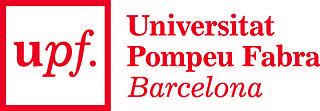
Pompeu Fabra University is a public university located in the city of Barcelona, Catalonia in Spain. The university was created by the Autonomous Government of Catalonia in 1990 and was named after Pompeu Fabra. It is highly competitive in research and has as its goal the transformation of education to meet the challenges of the future. UPF has been ranked the best university in Spain since 2015 and 16th best young university in the world in 2022 by the Times Higher Education World University Rankings.
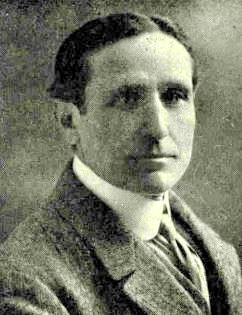
Pompeu Fabra i Poch was a Catalan engineer and grammarian from Spain. He was the main author of the normative reform of contemporary Catalan language.

Valencian or Valencian language is the official, historical and traditional name used in the Valencian Community of Spain to refer to the Romance language also known as Catalan, either as a whole or in its Valencia-specific linguistic forms. The Valencian Community's 1982 Statute of Autonomy and the Spanish Constitution officially recognise Valencian as the name of the regional language.

The Commonwealth of Catalonia was a deliberative assembly made up of the councillors of the four provinces of Catalonia. Promoted in its final stages of gestation by the Regionalist League of Catalonia, it was strongly endorsed by municipal referendum in October 1913.
The Acadèmia Valenciana de la Llengua, also known by the acronym AVL, is an institution created on September 16, 1998, by the Valencian Parliament, which belongs to the set of official institutions that compose the Generalitat Valenciana, according to the Act of Autonomy of the Valencian Community.
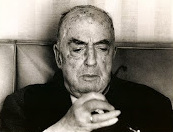
Josep Carner i Puigoriol, was a Spanish poet, journalist, playwright and translator. He was also known as the Prince of Catalan Poets. He was nominated for the Nobel Prize in Literature seven times.
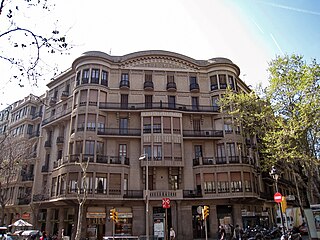
Noucentisme was a Catalan cultural movement of the early 20th century that originated largely as a reaction against Modernisme, both in art and ideology, and was, simultaneously, a perception of art almost opposite to that of avantgardists. In 1906, Eugenio d'Ors coined the term following the Italian tradition of naming styles after the centuries and using the homonyms nou (nine) and nou (new) to suggest it was a renovation movement. The same year two essential works for Noucentisme were published: Els fruits saborosos by Josep Carner and "La nacionalitat catalana" by the Conservative politician Enric Prat de la Riba.
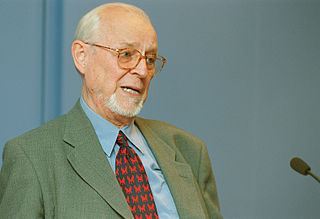
Jordi Carbonell i de Ballester was a Spanish politician from Catalonia.
Jordi Camí is Professor of Pharmacology at Pompeu Fabra University, General Director of the Barcelona Biomedical Research Park (PRBB), and vice president of the Pasqual Maragall Foundation.
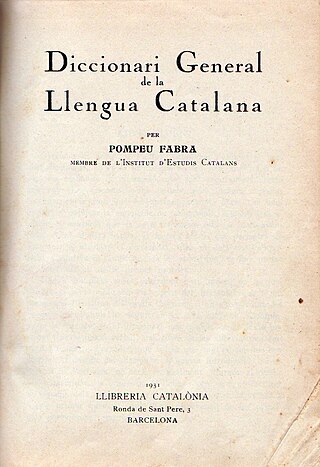
The Diccionari General de la Llengua Catalana by Pompeu Fabra is a Catalan dictionary, first published in fascicles in 1931. It was the Standard Catalan dictionary until 1995, when the Institut d'Estudis Catalans published its Diccionari de la llengua catalana.

The Catalan dialects feature a relative uniformity, especially when compared to other Romance languages; both in terms of vocabulary, semantics, syntax, morphology, and phonology. Mutual intelligibility between its dialects is very high, estimates ranging from 90% to 95%. The only exception is the isolated idiosyncratic Alguerese dialect.
The Dictionary of the Catalan language of the Institute of Catalan Studies (DIEC) is the dictionary of Catalan of the Institute of Catalan Studies (IEC) and, therefore, the standard dictionary of and reference for the Catalan language, together with the dictionary of standard Valencian produced by the AVL.
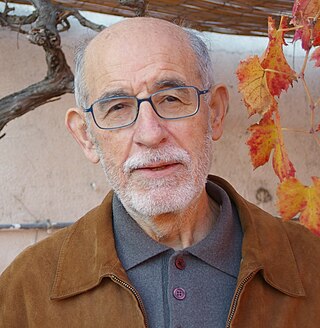
Joan Solà Cortassa was a Spanish linguist and philologist. He was professor of Catalan language and literature at the University of Barcelona from 1984 onwards, and vice president of the Institut d'Estudis Catalans (IEC) from 2009.

The Normes ortogràfiques are a list of 24 rules which were promulgated by the Institut d’Estudis Catalans on January 24, 1913, with the purpose of regularizing Catalan spelling. They were made to establish a graphic codification for the Catalan language, which at the time did not have a system of unitary spelling.
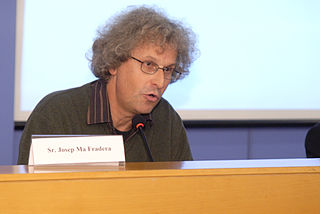
Josep Maria Fradera Barceló is a Spanish historian, professor of Contemporary History at the Pompeu Fabra University. Specialised in the colonial system of the late Spanish Empire, he has also studied the history of Catalonia.

Ramon Amigó Anglès (1925–2011) (Spanish) was a writer, a teacher of Catalan and an onomast.
Montserrat Bajet Royo is a professor and Spanish historian.
These are lists of spelling-to-sound correspondences in the Catalan language. The two main standard forms are used as primary transcriptions norms of their respective spelling forms.

Maria Teresa Cabré i Castellví is a Catalan linguist. She is professor emeritus of Linguistics and Terminology at Pompeu Fabra University (UPF). Since 2021, she has been president of the Institute for Catalan Studies. Her areas of expertise are in lexicology, lexicography, terminology, and discourse analysis.















